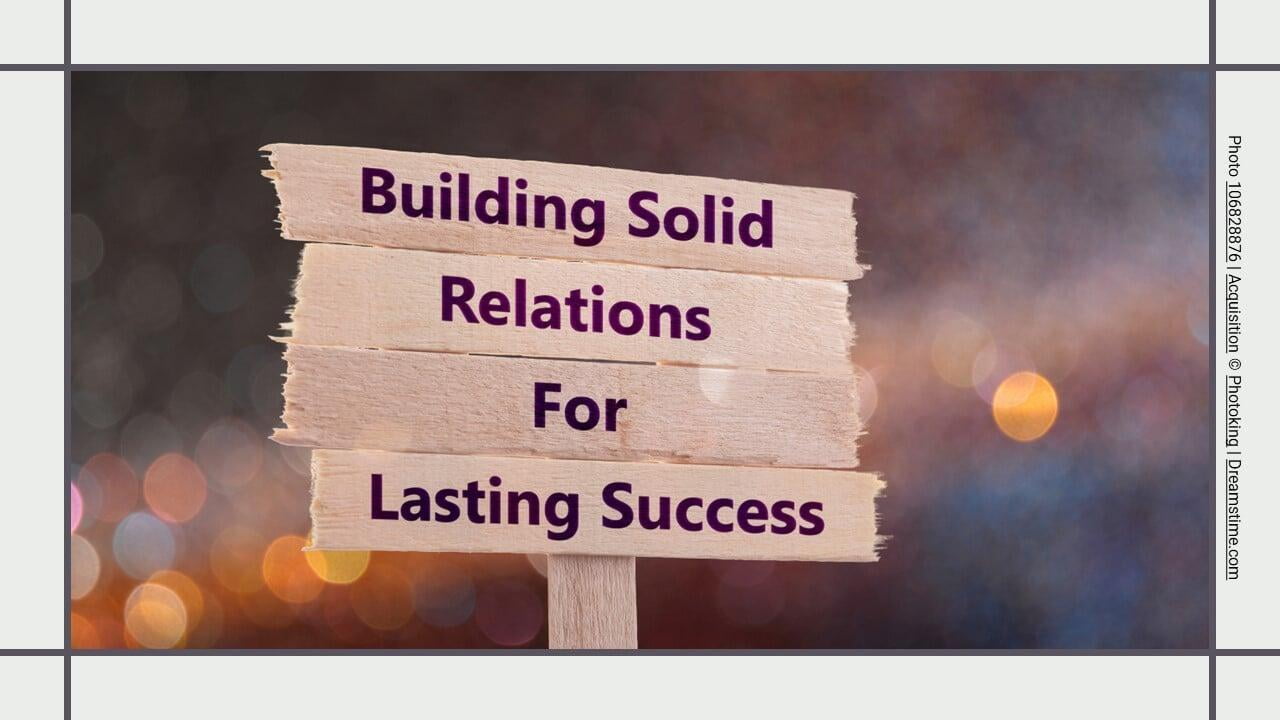When it comes to the expansion and growth of a business, one of the most crucial steps is finding and attracting the right capital. Just like setting the cornerstone of a building, this process forms the foundation for the entire business structure. In this series, we will start from the ground floor, focusing on the initial step of constructing an organic database of potential investors. This undertaking is vital, as it will be the basis for your entire investment strategy. By building a solid and comprehensive database of potential investors, you are laying the groundwork for success in securing the necessary funds for your business growth. This process involves meticulous research and analysis to identify individuals or organizations that align with your business vision and goals. A well-constructed database of potential investors will allow you to effectively target your outreach efforts and tailor your pitch to match the interests and preferences of each potential investor. Ultimately, by investing time and effort into constructing a robust organic database, you are positioning your business for long-term success by laying the groundwork for attracting the right investors.

The Importance of an Organic Database
An organic database is not just a simple compilation of names and numbers; it encompasses a dynamic and alive collection of potential investors sincerely interested in your specific industry or niche. These lists are not obtained through purchase but are organically built on the foundation of relationships and shared values. As a result, the engagement and interest generated from such databases are significantly higher than those obtained through other means.
Unlike purchased databases, which may contain generic information and unfamiliar contacts, organic databases are built through meaningful connections. These connections are established through various channels, such as events, online and offline networking, and referrals. An organic database is more than just a static list of names and numbers; it is a dynamic and living collection of potential investors genuinely interested in your niche. An organic database is created based on authentic relationships and shared values.
This means that the individuals within this database have willingly chosen to receive your information and have shown a genuine interest in what you offer. You can expect higher interest, engagement, and conversion rates when you engage with these individuals. They have actively opted into your database and are more likely to be receptive to your messages and offers.
An organic database allows you to build meaningful connections and foster long-term relationships with your audience. This ultimately increases the likelihood of success in your business ventures.
In addition to their higher engagement and interest levels, organic databases provide other business advantages. One key advantage is personalizing and tailoring messages to specific segments within your database. Since you have built relationships with individuals in the organic database, you have a deeper understanding of their needs, preferences, and pain points. This allows you to create targeted marketing campaigns and deliver relevant content that resonates with your audience.
Furthermore, organic databases offer a higher investment return than purchased or acquired databases. These lists are comprised of individuals who have willingly opted in to receive information from you, indicating their genuine interest in your industry. This means the chances of converting leads into customers are significantly higher, resulting in a more efficient marketing and sales process.
Building an organic database takes time and effort, involving cultivating genuine relationships with individuals. It requires engaging with your target audience through social media, events, webinars, and personalized communication. You can establish trust and credibility within your industry by consistently providing value and demonstrating your expertise.
To nurture your organic database, it is essential to prioritize relationship-building strategies. This includes maintaining open lines of communication, regularly providing valuable content, and seeking feedback from your audience. By continuously investing in the growth and development of your organic database, you can foster a loyal community that supports your brand and contributes to its long-term success.
Step 1: Identifying Your Ideal Investor Profile
When seeking investments for your business, it is essential to have a clear understanding of your target investors. These individuals play a pivotal role in determining the success and growth of your business. By identifying the specific types of investors you are targeting, such as angel investors or crowd investors, you can tailor your communication and marketing efforts to better appeal to their interests and values. Angel investors, for example, are typically passionate about supporting early-stage startups and may be more inclined to invest in innovative ideas with high growth potential. On the other hand, crowd investors may have a specific interest in a particular technological innovation and are more likely to invest in projects that align with their passion. By recognizing and understanding these ideal investors, you can establish a stronger connection with them and effectively convey your message on a deeper level. This personalized approach increases your chances of attracting the right investment opportunities for your company. It sets you on the path to success.

Step 2: Gathering Information Through Multiple Channels
Adopting a multi-faceted approach incorporating various strategies is essential to gather information. Attending industry events can be an excellent way to connect with potential investors and stay updated on your field's latest trends and developments. These events often provide networking opportunities and valuable connections with industry experts and like-minded individuals. During these events, you can engage in meaningful conversations, exchange ideas, and potentially gain insights into the challenges and successes of others in your industry. By actively participating in these events, you expand your knowledge base and increase your visibility among potential investors who may be impressed by your presence and expertise.
In addition to attending industry events, leveraging social media platforms can be immensely beneficial for reaching a wider audience and increasing your visibility. The power of social media lies in its ability to connect individuals from different corners of the globe with shared interests. By sharing insightful content and engaging with your followers, you can cultivate a strong online presence and attract potential investors. Social media platforms give you a unique opportunity to showcase your expertise and establish yourself as a thought leader. Additionally, through these platforms, you can target specific demographics and reach out to those who might be particularly interested in your venture.
Furthermore, participating in online communities specific to your industry allows you to interact with individuals who might be interested in your venture, exchange ideas, and gain insights from their experiences. These communities serve as a hub for like-minded individuals who share a passion for your industry. By actively engaging in these communities, you expand your network and build relationships with potential investors who may see value in your venture. Providing valuable content showcasing your expertise is crucial, enabling potential investors to see your unique value proposition. Incorporating calls to action in your content can further encourage interested individuals to sign up for more information, building a database of potential investors for future engagement.
By implementing this multi-faceted approach, you ensure that you are actively collecting information and connecting with potential investors in various settings, maximizing your chances of success. It is important to remember that effectively gathering information requires a proactive mindset and a willingness to explore different avenues. Combining industry events, social media, and online communities creates a comprehensive strategy to gather valuable insights, establish connections, and attract potential investors. With each interaction and information collected, you are one step closer to achieving your goals and turning your venture into a success.
Step 4: Utilizing Technology to Manage Your Database
As your business expands and your database of customers and potential investors grows, it becomes increasingly crucial to have effective methods of managing and organizing the information within it. This is where customer relationship management (CRM) systems come into play. CRM systems are sophisticated tools designed to assist businesses in tracking and managing their interactions with potential investors and customers.
By implementing a CRM system, you can ensure that no opportunity for engagement or relationship-building falls through the cracks. These robust platforms allow storing and accessing vital customer data in a centralized location. This data could include contact information, previous interactions, and preferences. Having all this information readily available not only helps to streamline your operations but also enables you to provide a personalized and tailored experience to your potential investors.
With a CRM system, you can easily track and monitor the status of your leads. This means you can watch each potential investor's progress through the sales funnel, ensuring no one gets left behind. Additionally, CRM systems can automate communication tasks, such as sending follow-up emails or reminders, saving your team time and effort. By automating these processes, you can ensure that every potential investor receives the attention they deserve.
Furthermore, CRM systems allow you to segment your audience for targeted marketing campaigns. By segmenting your audience based on criteria such as location, industry, or previous interactions, you can create tailored marketing campaigns more likely to resonate with each group. This targeted approach increases the chances of converting potential investors into loyal customers.
Step 5: Nurturing Relationships Over Time
Building a database is a continuous and dynamic process beyond simply setting it up and leaving it be. It demands constant effort and dedication to cultivate the relationships that you have initiated. To keep potential investors engaged and informed, it is crucial to provide regular updates on the progress of your business and maintain personalized communication. These updates can include sharing recent achievements, milestones, or noteworthy developments that may interest your investors. By establishing a sense of transparency, you foster trust and create meaningful connections. This transparency can be reinforced by openly discussing your business's successes, challenges, and setbacks. Sharing such information informs your investors and demonstrates your commitment to your business and its growth. Personalized communication is another vital aspect of maintaining an engaged database. It involves understanding each investor's needs, goals, and preferences and tailoring your communications accordingly. By recognizing individual interests, you can provide relevant updates and engage in meaningful conversations that resonate with each investor personally. Building and nurturing a database requires consistent updates, transparent communication, and personalized interactions to ensure genuine engagement and foster fruitful relationships with potential investors.
Conclusion
To create an organic investor database, you can start by identifying your target audience and the types of investors interested in your business or project. Look for investors with a genuine interest in similar ventures or industries. Also, consider their investment criteria, size, and past investment track record.
Next, leverage various channels, such as networking events, industry conferences, and social media platforms, to connect with potential investors. Attend events where you can interact with investors directly and showcase your project. Utilize online platforms like LinkedIn to engage with investors and build relationships by sharing valuable content and participating in relevant discussions.
When reaching out to potential investors, personalize your communication and highlight the alignment between your venture and their investment philosophy or interests. Please demonstrate that you have researched and understand their investment approach and values. This personalized approach will show that you are genuinely interested in building a mutually beneficial relationship rather than just seeking funding.
Regularly update and nurture your investor database by providing timely updates on your business progress, milestones, and achievements. This helps to maintain their interest and engagement in your venture. Additionally, learn about their investment goals and preferences to ensure you can provide them with relevant opportunities and information.
Finally, prioritize maintaining open and transparent communication with your investors. This includes being honest about challenges or setbacks and seeking their advice or input when necessary. Building trust and credibility with your investors will strengthen your relationship and increase the likelihood of long-term support.
In conclusion, having an organic investor database can significantly impact the success of your funding strategy. By prioritizing authentic relationships, you can attract investors aligned with your purpose and values, leading to long-term support and growth. Regularly nurturing and maintaining these relationships will create a sustainable foundation for your endeavors and increase the likelihood of success.
Building a robust organic database is foundational in cultivating potential investors and setting the stage for successful funding relationships.
Tune in next week to learn how "First Impressions" can make or break your investor interactions and master crafting an irresistible narrative that captivates both online and offline.
Disclosure and Transparency Statement:
This article is founded on my industry knowledge and expertise coupled with the assistance of artificial intelligence (AI) tools to enhance the breadth and depth of the information presented. As a committed advocate for small businesses and a pioneering voice in expanded capital solutions, I leverage technologies such as OpenAI, Bard, Bing, Claude, Grammarly, and other aids in my productivity, research, and composition processes interchangeably. This includes writing, editing, refining, or assisting in creativity, brainstorming, or outlining. The core substance of this content is sourced and prompted by my extensive experience and industry acumen of over 30 years. This and other blog posts have been refined to provide clarity and substance in service to the readers' success. You can edit text on your website by double clicking on a text box on your website. Alternatively, when you select a text box a settings menu will appear. your website by double clicking on a text box on your website. Alternatively, when you select a text box.






